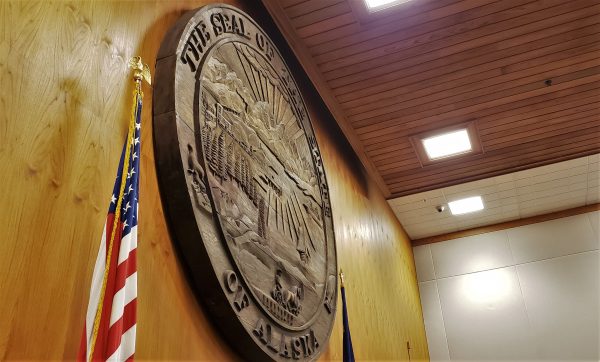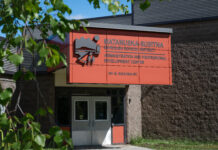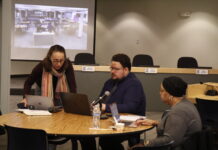
The Alaska Judicial Council’s vote on nominees to fill a seat on the Alaska Supreme Court was closer and more contentious than usual.
On Tuesday, the council voted to forward a list of three candidates to Republican Gov. Mike Dunleavy, who will select one to fill an upcoming vacancy on the state’s highest court. All three women are Anchorage Superior Court judges, and Dunleavy has passed over each in previous selections.
Dani Crosby, Jennifer Stuart Henderson and Yvonne Lamoureux are the top three rated candidates out of seven applicants, according to a survey of Alaska attorneys.
The vote prior to finalizing that list involved a tie-breaker by state Supreme Court Chief Justice Joel Bolger, whose seat on the high court will be filled by the new justice when he retires in June.
“It’s extremely rare for the chief justice to have to vote,” said Susanne DiPietro, the judicial council’s executive director, citing records going back to 1984. “The chief justice has actually been called upon to vote less than 1 percent of the time in just a handful of situations.”
It’s uncommon because the chief justice only votes if the other six members are deadlocked. That doesn’t happen often, DiPietro said.
At issue Tuesday was Kotzebue Superior Court Judge Paul Roetman, who had the support of Dunleavy-appointed judicial council member Kristie Babcock. Babcock runs a State Farm Insurance agency in Kenai and is married to Tuckerman Babcock, former chair of the Alaska Republican Party and former chief of staff to Gov. Dunleavy.
Roetman, who is Mexican-American, was the only nonwhite candidate and the only from rural Alaska. He scored sixth out of the seven candidates on the survey of Alaska attorneys.
In the council’s vote on Roetman, Babcock and the two other public members of the council voted yes, and the three members of the council selected by the Alaska Bar Association voted no, as did Bolger.
According to the Anchorage Daily News, Babcock then changed her vote in protest against all of the other candidates, saying, “If we cannot move that name forward, then it’s not right to move any names forward.”
The council ultimately selected Crosby, Henderson and Lamoureux. Dunleavy has 45 days to pick one of them.
In 2019, Dunleavy announced a selection for a judgeship that was not one of the Judicial Council’s nominees. He relented after Justice Bolger made a statement pointing out that move would be unconstitutional.
Casey Grove is host of Alaska News Nightly, a general assignment reporter and an editor at Alaska Public Media. Reach him atcgrove@alaskapublic.org. Read more about Caseyhere.





